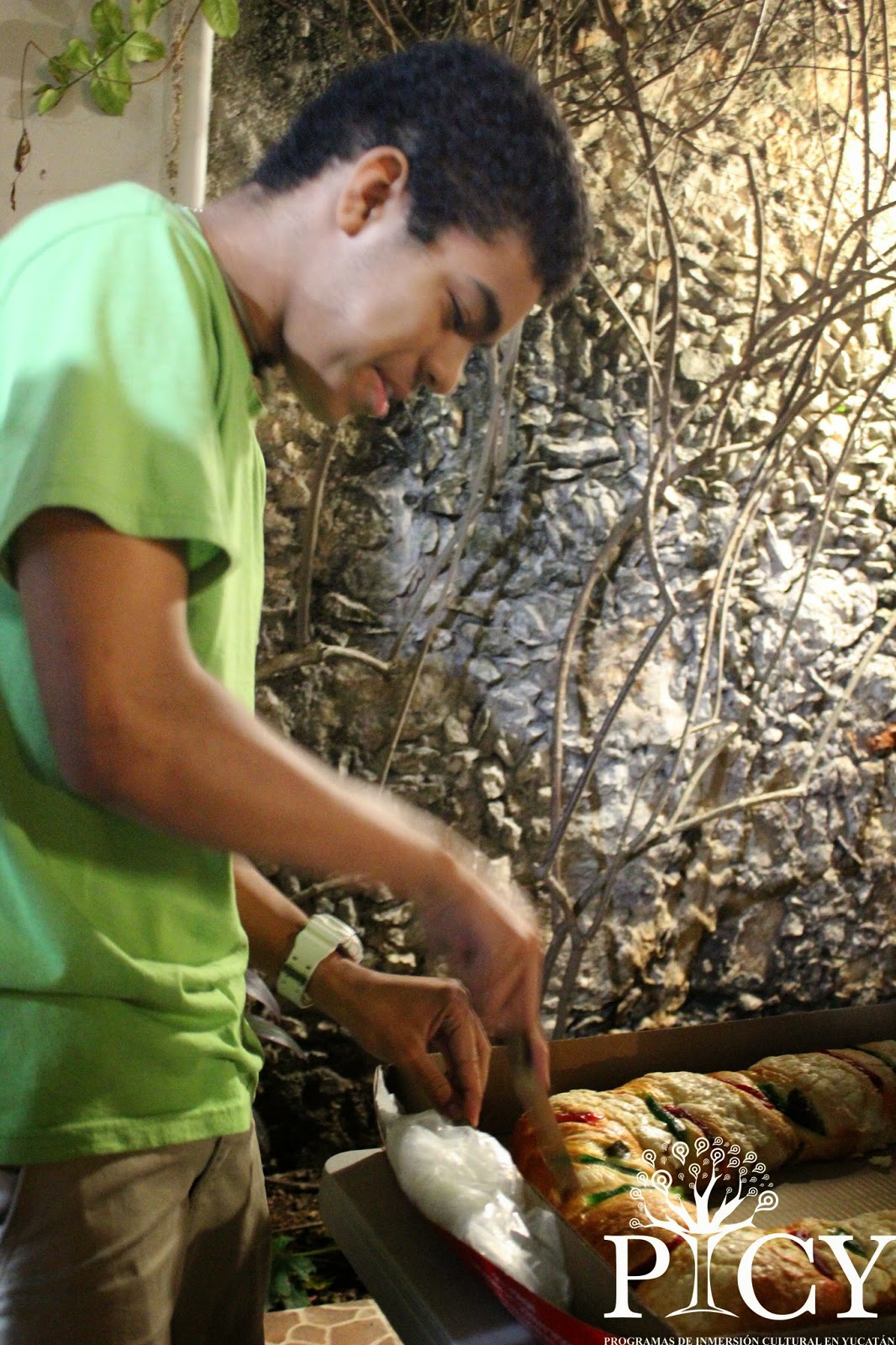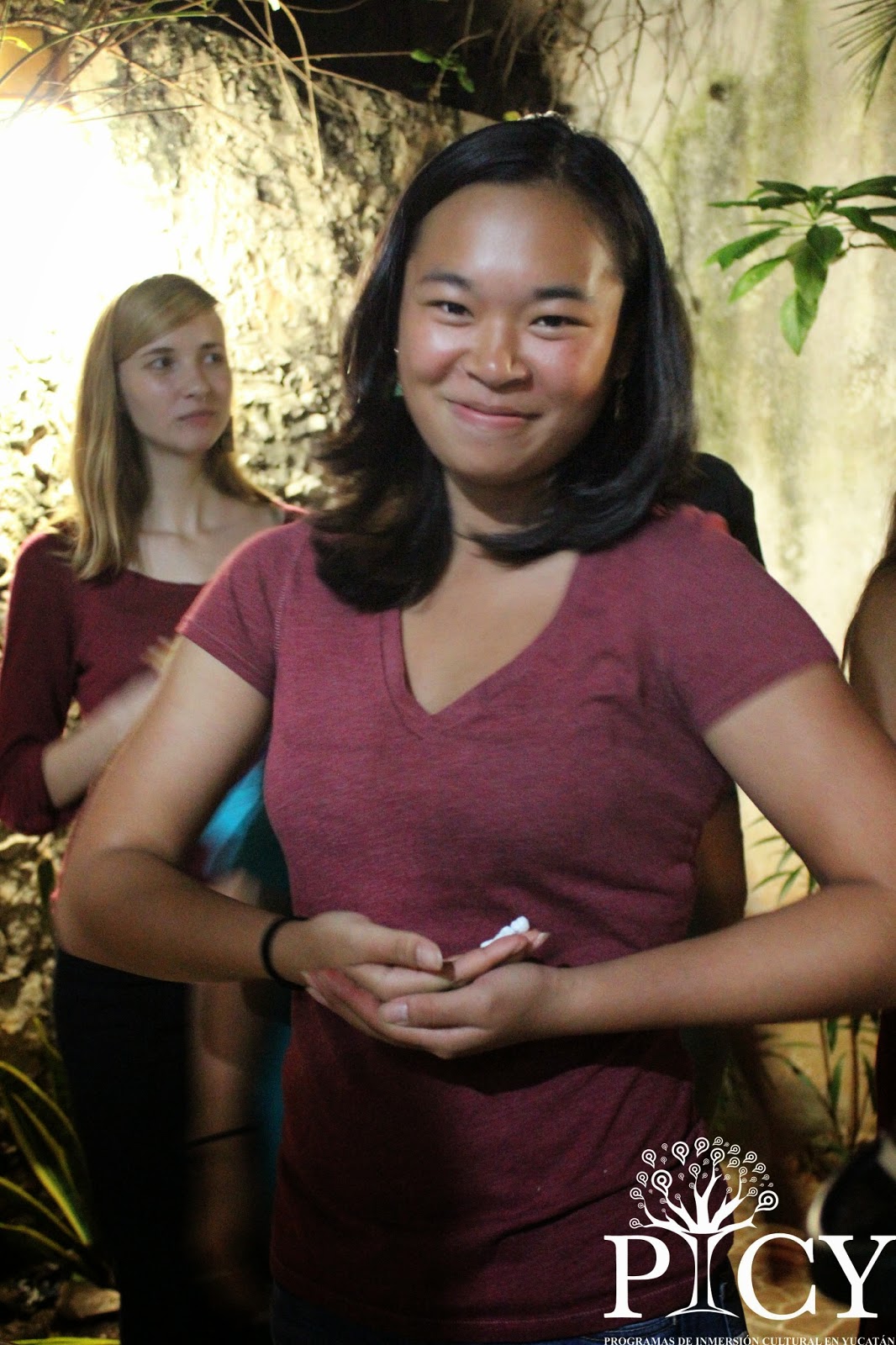Yesterday was the day of the
Rosca de los Reyes (bread of the wise men). The tradition, which is a fusion of Spanish and Mexican cultures dating back to the Spanish conquest, includes parting a large round loaf of sweet bread that is typically adorned with candied fruits. The circular nature of the bread is meant to represent the circle of life, and baked into the loaves are small
muñequitos (figures) of the baby Jesus. The custom is for each person to cut their own piece of the
rosca anywhere in the circle that they wish, and the person who finds the figure in their piece is charged with making
tamales for the whole group for the next holiday:
Dia de la Candelaria which falls on February second. Since the day of
los Reyes is so well known, it is possible to find a
muñequito multiple times during the day, at work, at school, and at home! The
día de los Reyes is also a day for gifts, for just as the three
reyes magos (wise men) brought gifts to baby Jesus, so do these modern
reyes bring small gifts to the children. After our short Mayan class last night, we parted a
rosca together in the school!
 |
| Lilyana |
 |
| Emanuel |
 |
| Hale |
 |
| Rosa |
 |
| Emma |
 |
| Kendall |
 |
| And Emily gets to make the tamales! |







